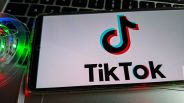The year 2014 has been a big year in the tech world. From the greatest tech products ever built to the hackings that have ruined companies to the business deals worth billions of dollars, the year didn't lack for headlines and drama.
Now that 2014 is over, it's time to take a look back at the year. Here are three of the biggest events that took place in tech in 2014.
One of the biggest stories of the year is the hacking of Sony Pictures. The company was first hacked in November, bringing employees offline and unable to work efficiently. After the original hack, hackers began releasing data that they stole, including five unreleased movies, thousands of Social Security numbers, sensitive emails from top Sony Pictures executives, and more.
North Korea was blamed for the hack, supposedly hacking the studio over the release of The Interview, a movie starring James Franco and Seth Rogen that depicts the two attempting to assassinate North Korean leader Kim Jong Un. While the FBI made the accusation, some experts now suggest that North Korea was not, in fact, behind the attack.
Sony pulled the movie from release when large cinema chains dropped out from showing it, but eventually decided to release it to a select number of theaters and online.
2014 was also the year that redefined mobile payments, with Apple Pay bursting onto the scene.
While the concept is certainly not new, with companies like Google offering Google Wallet, which is very similar, Apple Pay brought it into the mainstream. Not only that, but Apple Pay is certainly one of the more secure mobile payment systems, tokenizing each transaction to essentially create an unhackable system.
It is highly likely that Apple Pay, and other mobile payment services, will continue to take off into 2015, likely eventually replacing plastic cards.
Net neutrality has been a big topic in 2014. While a number of companies and corporate big-wigs tend to think the Internet should not become a public utility, hence allowing Internet Service Providers to create fast lanes for certain content, most of the general public seems to lean the other way, suggesting that all online content should be considered equal.
The debate has been raging since the beginning of the year, when a federal court of appeals rejected the Federal Communications Commission's Open Internet Order, which was designed to prevent ISP's from being able to create these Internet fast lanes.
New rules, however, are being written and are likely to be announced in early 2015. It is suggested that these rules will be somewhat of a hybrid approach, allowing for Internet fast lanes in some special cases but not in others.
ⓒ 2025 TECHTIMES.com All rights reserved. Do not reproduce without permission.




